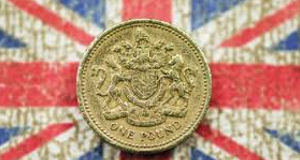 The April PMI number for the services sector, by far the largest contributor to UK economic output, was released today. The number exceeded analysts’ estimates and came in at a four-month high. In addition, today’s figure builds on earlier momentum from the respective numbers for the manufacturing and construction sectors, which also surprised to the upside, and points to a picking up in economic activity during the second quarter of the year after the slowdown in the preceding quarter.
The April PMI number for the services sector, by far the largest contributor to UK economic output, was released today. The number exceeded analysts’ estimates and came in at a four-month high. In addition, today’s figure builds on earlier momentum from the respective numbers for the manufacturing and construction sectors, which also surprised to the upside, and points to a picking up in economic activity during the second quarter of the year after the slowdown in the preceding quarter.
Taking a look at the actual Markit/CIPS services PMI reading, it stood at 55.8, favorably comparing to the expected 54.5 and the 55.0 from March. This was also the second strongest reading since mid-2015. Not everything in the report was upbeat though, as prices charged by service firms rose the fastest since July 2008, while company executives curbed their optimism about the year ahead for a third straight month.
Versus the dollar, sterling only posted some minor gains after the release of the data. Even those were short-lived. Relative to the euro, the pound weakened but soon after made up for the loss. Pound / dollar and euro / pound were last slightly up on the day. Specifically, pound / dollar was marginally below the 1.29 level and euro / pound close to the intraday high of 0.8479.
With Brexit developments on the horizon, it has been common place for issues related to Britain’s exit from the EU bloc of nations to dominate sterling movements over economic data releases, even positive ones such as this week’s PMI numbers. This especially holds true after the previous week’s summit by the remaining EU member states to decide on a common stance on Brexit and UK Prime Minister Theresa May’s recent comments towards European Commission president Jean-Claude Juncker that she will be a “bloody difficult woman” in the upcoming negotiations.
The Bank of England will be holding a meeting next week to set monetary policy moving forward. Despite one rate-setter voting for a rate hike during the previous meeting and others saying they’ll follow suit if they felt inflation was rising too quickly, markets widely expect the Bank to maintain its key rate at the record low 0.25% throughout the year to help the UK economy ahead of potential Brexit-related threats.
Finally, it is worthy of mention that general elections will be held in the UK on June 8. The Conservatives -PM May’s party- are expected to prevail.

Origin: XM












